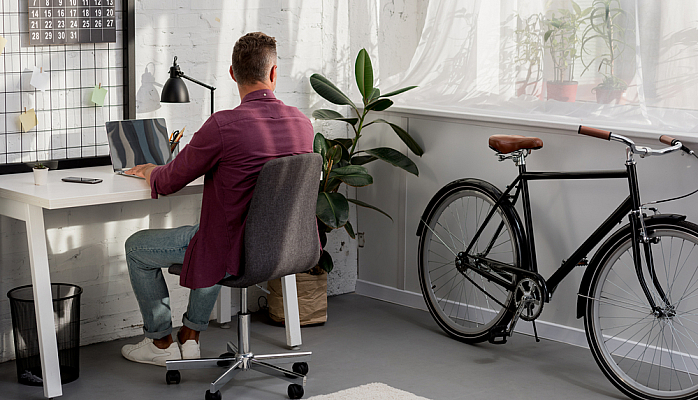
How to house flip for profits
House flipping can be an excellent way to make money. However, it can also be a risky venture.
Before you get started, it’s important to know what to expect and how to prepare. Here are some tips on house flipping for profits that can help you avoid mistakes and maximize your potential for profit.
What you need to know before you start
House flipping is a lucrative way to make money in the real estate market. However, like all real estate investments, it comes with a lot of risks and requires careful planning.
Before you get started, it’s important to know the basics of how flipping works and what it takes to be successful. If you want to turn a profit, you need to learn how to find a great deal on the right property, how to fix it up for a higher price than you paid, and how to sell it at a higher price again.
A good place to start is by talking to an experienced real estate agent. They can tell you the best places to find good deals on properties in your area. They can also help you set up automatic emails that will alert you when new houses come on the market that fit your criteria.
Once you’ve identified a few potential properties, you need to do some research and analyze them. This can be done by walking through a few properties with your agent or doing online research. The more you do, the better your chances of finding a great flip.
Another key step to house flipping is figuring out how to finance the property. This can be done through cash, a mortgage loan, or some other form of financing.
The type of financing you choose depends on your personal savings, credit score, and available cash. If you’re buying the property with a mortgage loan, you will need a down payment of at least 20%. Getting a loan with a down payment can save you from having to pay private mortgage insurance (PMI) each month, which can cut into your profits.
You may also consider using seller financing to purchase the property, which can be a fast and easy way to buy a home without having to worry about your own financing. This can be a great option for people who are short on cash.
Regardless of your choice, it’s important to plan out the rehab schedule and keep track of everything from the date you start to the day you sell the house. This will help you avoid any delays that can derail your progress or cause you to eat into your profit.
Tips on house flipping
House flipping is a great way to make money in the real estate market, but you need to be careful not to do it without the right amount of planning and preparation. If you’re not prepared, you could end up making a lot of mistakes and losing a significant amount of money.
First, you’ll need to decide whether you want to go into this business with 100% commitment. You can’t start this business if you don’t truly believe in it and aren’t willing to learn all you need to know.
Next, you’ll need to research different markets and find a neighborhood where you think it would be profitable to flip homes. This involves researching home prices, the number of homes for sale and the average price per square foot.
Then, you’ll need to develop a realistic budget for the project, including the purchase price of the property, financing, renovation costs and professional fees. You should also factor in the size of the home and how long it will take to renovate.
In addition, you should consult with an expert to help you figure out the best strategies for a successful house flip. For example, an experienced real estate agent can give you insight into the local real estate market and help you identify the type of houses that will be most appealing to buyers.
Finally, you’ll need to set up a team of professionals that will help you execute your plans. This includes a real estate agent, a construction/remodeling company and a home inspector.
Once you have your team in place, you’ll be able to find and buy the perfect homes for your flips. Ideally, you’ll be able to choose from foreclosures, auctions, short sales and other types of real estate that are in need of repairs and can be sold for a profit quickly.
Choosing a good property is the most important step in any house flip. You’ll need to research the neighborhood and find a property that will sell for a fair price after you fix it up. Then, you’ll need to decide how much work is necessary to transform the house into a profitable investment.
What you shouldn’t do
House flipping can be a lucrative way to make money, but it can also be very dangerous. You should be aware of the common mistakes that can be made in house flipping, and know how to avoid them.
The first mistake that many people make is not establishing a realistic budget. Creating a house flipping budget helps you understand what you will need to invest and how much the project will cost you in total. This will help you avoid escalating costs and allow you to maximize your profits in the long run.
Another mistake that many people make is not properly preparing the home before flipping it. This can lead to a lack of interest from buyers and damage your reputation as a property flipper.
You should also avoid making any major changes without first getting the owner’s approval. This will ensure that the changes are done correctly, and it will avoid any future disputes.
If you do make changes to the home, be sure that they are in keeping with the style of the home and will appeal to potential buyers. For example, if you’re flipping a Victorian home, don’t try to make it look like a contemporary house.
Similarly, you should always do your research before buying a fixer-upper. Ask for an estimate from a contractor or inspector to determine how much repairs will cost you.
Once you have an idea of what the house will cost to renovate, you should set a fair price for it. This is crucial because it will help you attract serious offers and avoid losing out on deals that are too low.
Finally, be sure to get an appraisal for the house before making an offer on it. This will give you a clear idea of what the house is worth, and will help you make an informed decision about whether to buy it or not.
Ultimately, house flipping is all about making good profits. But it’s also important to treat others with respect and honesty. These ethical principles will help you build a reputation as a trustworthy and reliable house flipper. They will also protect you from being caught in any legal ramifications that may arise due to your business practices.
How to avoid these mistakes
Purchasing, renovating, and reselling homes within a short time frame is commonly called house flipping. It’s a popular real estate investment strategy that’s often featured on popular TV shows, and it can be very profitable if done correctly.
However, just like any other business, house flipping requires a great deal of knowledge and planning. This is especially true when it comes to renovations, which can be expensive and take up a lot of time. In addition, it can be very difficult to predict what a property will sell for in the future.
This is why it’s important to make sure that the acquisition price, plus all of the costs involved with the improvements, is less than the current market value of the home. This is a key factor in ensuring that you make a profit when the house is eventually sold.
It’s also important to make sure that the house is located in a neighborhood where it will be easier to find buyers, and that it has a strong market presence. This will help you get a better return on the investments you make in the home, and it will be more likely to sell quickly.
If you’re not confident in your ability to choose the right properties, hire a professional to do the research for you. This way, you’ll know exactly what to look for when you begin searching for potential flips.
Before investing in a property, it’s important to ensure that you inspect it thoroughly. This will help you to determine whether or not it needs any major repairs or other significant improvements, and if it will be worth the money that you’ll spend on it.
Similarly, it’s important to check the neighborhood before you make any improvements, as this can affect the value of the home. If the neighborhood looks dated or worn out, it’s unlikely that a new bathroom or updated kitchen will be attractive to potential buyers.
It’s also important to estimate your budget as you go, so you don’t blow it on costly materials or renovations. This will keep you on track and prevent you from making unnecessary expenses that can cut into your profits.














Community Discussion